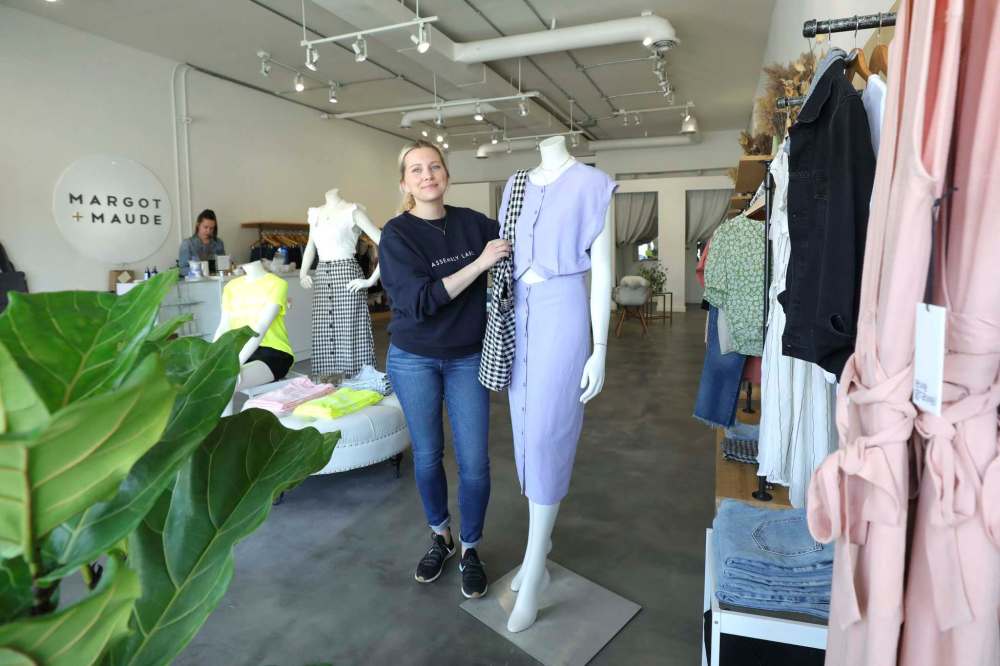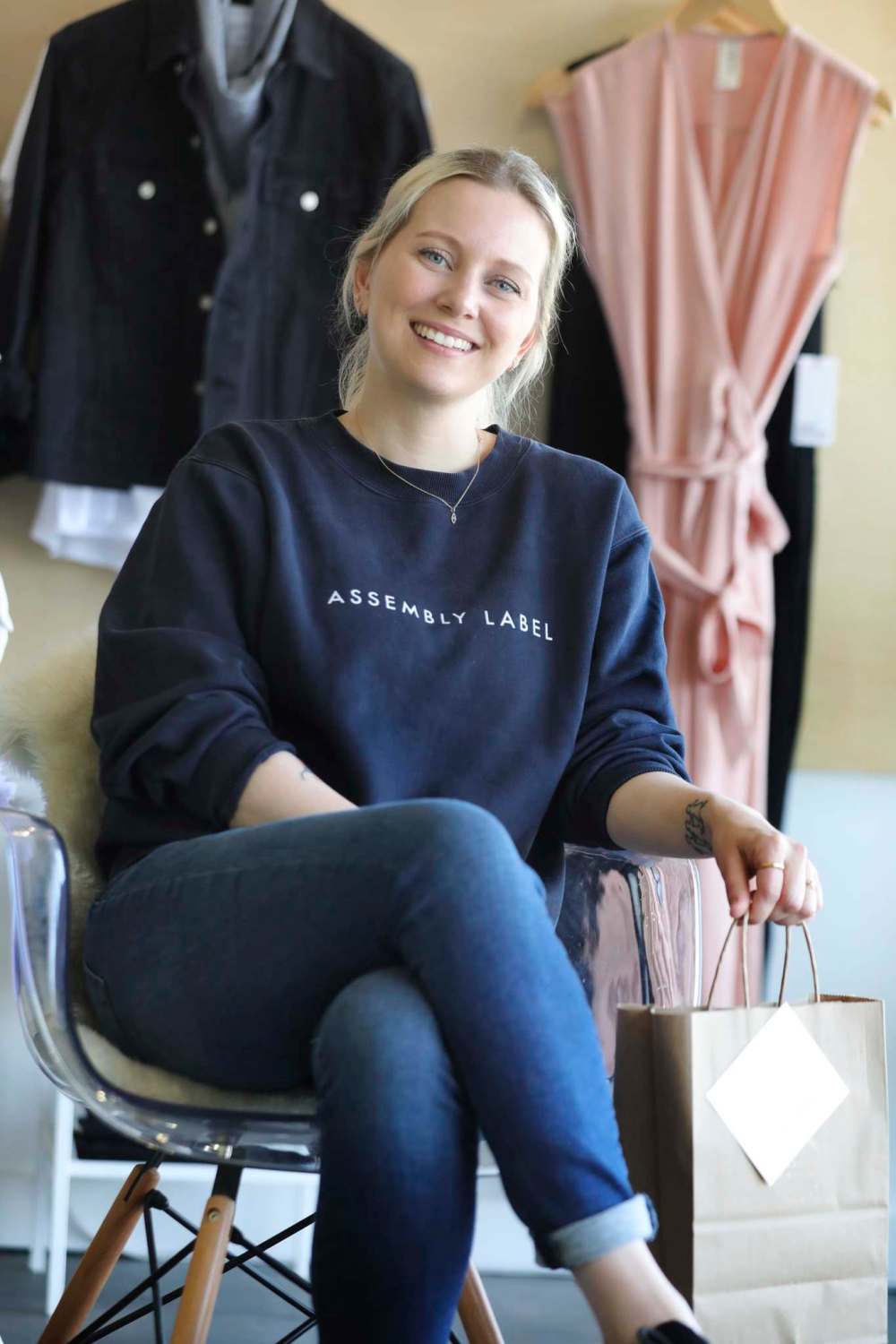Retail therapy
How has the coronavirus altered the way we shop for clothes?
Advertisement
Read this article for free:
or
Already have an account? Log in here »
To continue reading, please subscribe:
Monthly Digital Subscription
$1 per week for 24 weeks*
- Enjoy unlimited reading on winnipegfreepress.com
- Read the E-Edition, our digital replica newspaper
- Access News Break, our award-winning app
- Play interactive puzzles
*Billed as $4.00 plus GST every four weeks. After 24 weeks, price increases to the regular rate of $19.95 plus GST every four weeks. Offer available to new and qualified returning subscribers only. Cancel any time.
Monthly Digital Subscription
$4.99/week*
- Enjoy unlimited reading on winnipegfreepress.com
- Read the E-Edition, our digital replica newspaper
- Access News Break, our award-winning app
- Play interactive puzzles
*Billed as $19.95 plus GST every four weeks. Cancel any time.
To continue reading, please subscribe:
Add Free Press access to your Brandon Sun subscription for only an additional
$1 for the first 4 weeks*
*Your next subscription payment will increase by $1.00 and you will be charged $16.99 plus GST for four weeks. After four weeks, your payment will increase to $23.99 plus GST every four weeks.
Read unlimited articles for free today:
or
Already have an account? Log in here »
Hey there, time traveller!
This article was published 27/05/2020 (2102 days ago), so information in it may no longer be current.
Scrolling for summer dresses isn’t the same as scouring the racks for that perfect ice cream outfit, but new shopping protocols may help those wary of the in-store experience.
Since the government announced the province’s economic reopening plan, retailers big and small have come up with myriad ways to keep their doors open while keeping customers safe.
Measures like waiting in line to enter a store, sanitizing hands, pointing to products, following markers on the ground, and even quarantining items after they have been touched or tried on are just some of the measures retailers are taking to maintain safety.

But despite best efforts, experts say there is still a risk of contracting COVID-19 while shopping.
“If many people are touching the items — and that will be the case — then yes, it could be a concern,” said Satinder Kaur Brar, an expert in environmental biotechnology and decontamination at York University.
However, information on virus transmission is limited, leaving experts room to debate retailer’s best practices.
ON CLOTHING
Most Canadian stores are quarantining their touched products for 24 to 72 hours. For clothing items, Brar said this is effective because viruses have a harder time surviving on soft materials, but it is not yet known what the virus’ lifespan is on different materials.
For example, the virus may perish sooner on a natural fabric like cotton but could survive on synthetic materials for a longer time period, calling into question how long items should be quarantined.
“I presume one working week would be enough — five days,” said Brar.
University of Toronto epidemiologist Colin Furness says shopping for clothing can be categorized as “two types of touching.” There is casual browsing when flipping through hangers, and concentrated contact when trying clothes on.
Furness stands by a shorter quarantine period, saying a “one-day delay” after an article of clothing is tried on could reduce the risk of transmission.
ON STEAMING
Steaming clothing has been adopted by many stores and Brar says viruses dislike humidity which could allow for the steaming to be effective. However, Furness said it isn’t known what temperature the steam needs to be or the duration of steam a garment requires to be deemed free of viruses.
ON GLOVES
While governments and medical professionals alike have discussed the use of personal protective equipment, the experts agree gloves are more harmful than helpful when shopping because of their inability to be sanitized properly.
“So you’re wearing something that you can’t clean, that you’re going to continue to touch and collect stuff on, and that you’re going to possibly continue to touch your face with,” said Furness.
“I would much rather see people with hand sanitizer sanitize their hands periodically.”
ON DISPLAY UNITS
Some retailers have removed their high-touch glass cases and opted to move jewelry behind the counter, showing customers items upon request and sanitizing them if not purchased.
Furness said removing high-touch installations is a good idea, so long as the products customers try on are sanitized afterwards.

ON LOCAL SHOPS
While it may be easier for retail conglomerates to pivot their protocols, some small business owners have decided to reach out to their customers to see how they prefer to shop within the government’s guidelines.
Kelsey Beck, owner of Margot + Maude on Academy Road, said she polled her 14,000 followers on Instagram to help piece together her brick and mortar store’s reopening strategy.
Eighty-nine per cent of respondents said people would prefer having the store open to the public with restrictions rather than private shopping.
Respondents also voted against employees wearing masks at 56 per cent.
Beck said the responses left her feeling a bit surprised.
“I thought people would want us to first open with a shopping by appointment model and then we’ll talk about opening to the public, so I feel like people were just ready to get out there again,” said Beck.
Margot + Maude reopened to shoppers on May 26 with public health protocols in place.
Beck said they will have a limited number of people in the store at a time, hand sanitizer at the door. They would also sanitize fitting rooms and disinfect products with cleaning supplies and a steamer.
With the province’s decision to begin Phase Two, retailers may once again have to review their protocols for the sake of customer experience.
— with files from The Canadian Press
nadya.pankiw@freepress.mb.ca

Nadya Pankiw
Multimedia producer
Nadya Pankiw is a multimedia producer at the Free Press. Nadya holds a Bachelor of Journalism from Carleton University and a Master of Publishing from Simon Fraser University. She joined the paper in 2020. Read more about Nadya.
Nadya is part of a team that curates and publishes journalism on our websites, apps and social media. It’s part of the Free Press‘s tradition, since 1872, of producing reliable independent journalism. Read more about Free Press’s history and mandate, and learn how our newsroom operates.
Our newsroom depends on a growing audience of readers to power our journalism. If you are not a paid reader, please consider becoming a subscriber.
Our newsroom depends on its audience of readers to power our journalism. Thank you for your support.
History
Updated on Wednesday, May 27, 2020 9:45 PM CDT: Updates headline
Updated on Thursday, May 28, 2020 5:58 AM CDT: Fixes headline
Updated on Thursday, May 28, 2020 11:16 AM CDT: Typo fixed.


